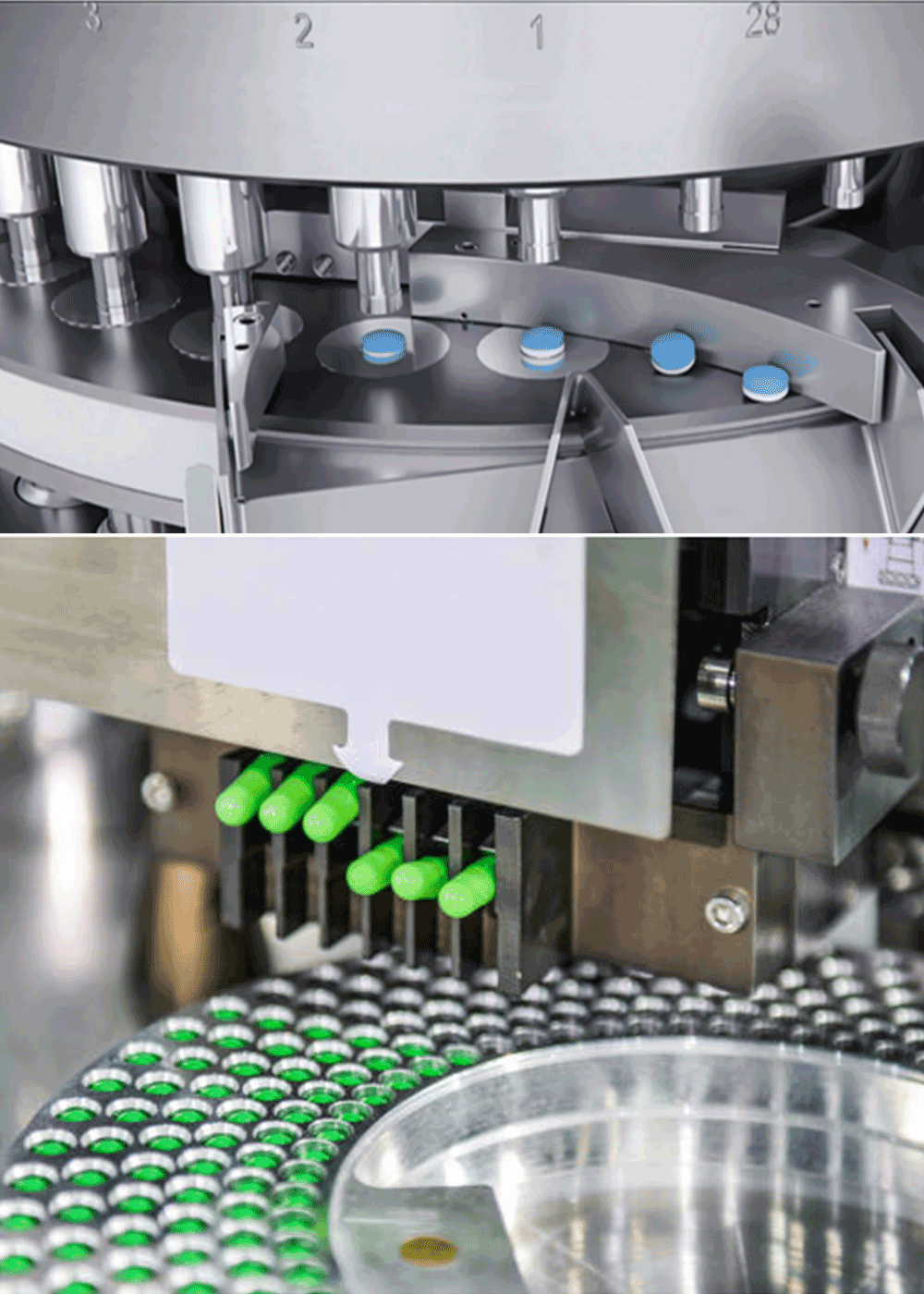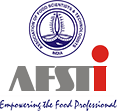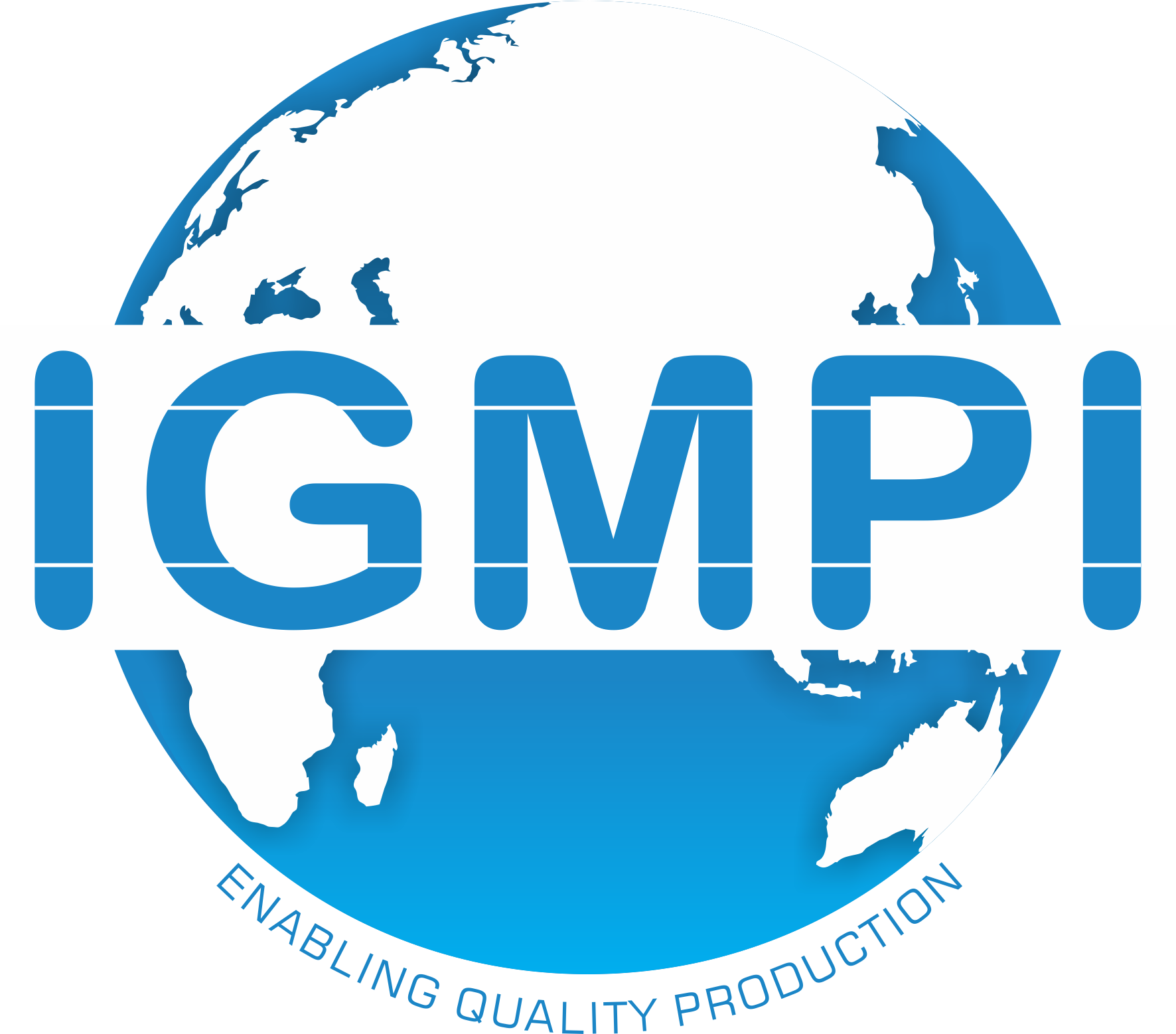


Institute of Good Manufacturing Practices India, registered under SR Act XXI of 1860, Government of India, recognised by Ministry of Commerce & Industry, accredited Vocational Institution of Ministry of Education, Government of India and approved by Food Safety and Standards Authority of India (FSSAI) presents unique, friendly and interactive platform to get rid of all your GMP compliance related issues. GMP- an essential element of industries like pharmaceutical, cosmetic, Ayurveda, biotech, homeopathic, medical device and food manufacturing - in itself is the most dynamic part which witnesses frequent changes in terms of newer rules being added and older ones being renewed. Keeping self updated with current GMPs thus becomes inevitable to stay abreast with the changing industry needs and practices.
Our group of learned professionals from above mentioned sectors of the Pharma, Healthcare, Food & Nutraceutical industries have put together their knowledge; know about and practical experiences in form of this GMP guide. IGMPI is moving hand in hand with technology advances and has gained recognition as a stronger and better education and training platform provider for professionals and students in the areas of GMP, Quality Assurance and Control, Pharma, Food & Nutrition and Healthcare Regulatory Affairs, Clinical Research, Pharmaceutical IPR and Good Laboratory Practice and Product Management. The importance of quality healthcare and foods is known to our board of governors and thus numerous efforts are being made to offer friendly but effective and easy regular and online sources of GMP training, Quality Assurance and Control, Pharma and healthcare Regulatory Affairs, Clinical Research, Pharmaceutical IPR and Good Laboratory Practice in form of formal classroom studies, online/interactive programmes, online seminars, as well as onsite training programmes along with knowledge of worldwide affairs of the industry; in short a round-the-clock help for any information in these areas needed by anybody from around the country and abroad. Based on high standard of quality, the training programmes in Pharma, Healthcare and Food GMP, Quality Assurance and Quality Control, Regulatory Affairs, IPR, Pharma Product Management, Public Health, Hospital Management, Clinical Research, Pharmacovigilance, Medical Writing, Medical Coding, Nanotechnology, Drug Design and Discovery, Food QA&QC etc areas have been approved by Quality Council of India, which is an autonomous body and an accreditation authority for education & vocational training providers under the Ministry of Commerce & Industry, Government of India. IGMPI is duly licensed and certified by Bureau of Indian Standards (BIS) under Bureau of Indian Standards (Conformity Assessment) Regulations 2018.
The IGMPI's team of technology experts and other Industry advisors together pursue to make cGMP knowledge, training in the area of Pharma and Food manufacturing easily accessible, through this platform.
IGMPI is recognized by the Ministry of Commerce & Industry Government of India. Duly licensed and certified by Bureau of Indian Standards (BIS) under Bureau of Indian Standards (Conformity Assessment) Regulations 2018 (License number: CRO/QM/L-8004228) for offering education and training programmes in the areas of Pharmaceutical, Food, Nutrition and Healthcare.


Institute of Good Manufacturing Practices India (IGMPI) is registered as a non-profit society with its own Memorandum of Association and bye-laws under The Societies Registration Act, 1860, Government of India. IGMPI is an accredited Vocational Institution of Ministry of Education, Government of India.
The Post Graduate and Executive Diploma programmes of IGMPI in Good Manufacturing Practices, Regulatory Affairs, Intellectual Property Rights, Quality Assurance and Quality Control, Public Health, Nanotechnology, Hospital Management, Product Management, Sales and Marketing Management, Clinical Research, Medical Writing, Drug Discovery and Development, Pharmacovigilance, Medical Coding have been duly assessed and approved by Quality Council of India, Government of India based on fulfillment of QCI's following criteria:
IGMPI is also approved by Food Safety and Standards Authority of India (FSSAI) (FSSAI ID: TPINS18). IGMPI® is licensed by Department of Food Safety & Drug Administration under the Drugs and Cosmetics Act, 1940 and registered under Food Safety and Standards Act 2006. QUALITY COUNCIL OF INDIA (QCI) has also conferred IGMPI with D.L. SHAH NATIONAL QUALITY AWARD, Certificate of Merit & ASSOCHAM has conferred IGMPI with the Services Excellence Award based on excellence of its services to the students and training participants.
IGMPI is a Lifetime Institutional member of Indian Pharmaceutical Association (IPA).

IGMPI is an Institutional member of The Association of Food Scientists and Technologists (India), (AFSTI).

Bureau of Indian Standards (BIS) came into existence through an act of Parliament in 1987. BIS is the National Standard Body of India established under the BIS Act 2016 for the harmonious development of the activities of standardization, marking and quality certification of goods and for matters connected therewith or incidental thereto. The Bureau is a Body consisting of 25 members representing both Central and State governments, Members of Parliament, industry, scientific and research institutions, consumer organizations and professional bodies; with Union Minister of Consumer Affairs, Food and Public Distribution as its President and with Minister of State for Consumer Affairs, Food and Public Distribution as its Vice-President.
For providing its education and training services to overseas students, IGMPI is registered with the Directorate General of Foreign Trade, Government of India and our Export Import Code is AADCI7680Q.
IGMPI is an Institutional Member of the International Society for Quality in Health Care 
Bureau of Indian Standards (BIS) is a member of International Organization for Standardization (ISO) and through the Indian National Committee (INC) which is a member of International Electrotechnical Commission (IEC). BIS is also a member of regional standards bodies like Pacific Area Standards Congress (PASC) and South Asian Regional Standards Organization (SARSO). India started taking part in IEC from 1911 and subsequently the then Indian Standards Institution (now BIS) took over the responsibility of Indian National Committee of IEC(INC-IEC) in 1949. Since then the INC-IEC is actively participating in the activities of the IEC both at the policy level and technical work and carrying out the responsibilities as member body of IEC Council. India is a member in Standards Management Board (SMB) of IEC since 2015.BIS has also signed Bilateral Cooperation Agreements (BCA)/Mutual Recognition Agreements (MRA) with the National Standards Bodies of several countries like Afghanistan, Bangladesh, Belarus, Egypt, European Union , Germany, Ghana, Greece, Indonesia, Iran, Japan, Jordon, Kenya, Kyrgyzstan, Mali, Mauritius, Nigeria, Russia, Saudi Arabia , Slovakia, Slovenia, Suriname, USA, UAE, Uzbekistan, Viet Nam, Bhutan, Brazil, Israel, Nepal, Pakistan and Sri Lanka.
National Accreditation Board for Certification Bodies (NABCB), Quality Council of India is a member of International Accreditation Forum (IAF) & Pacific Accreditation Cooperation (PAC) as well as signatory to its MLAs for Quality Management Systems, Environmental Management Systems and Product Certification. NABCB is also a Full Member of International Laboratory Accreditation Cooperation (ILAC) & Asia Pacific Laboratory Accreditation Cooperation (APLAC) as well as signatory to its MRAs for Inspection.
The pharmaceutical industry plays a significant role in healthcare systems all around the world. It is made up of both governmental and commercial entities that research, develop, manufacture, and sell medications. Molecular biologists, medicinal chemists, and chemists are all attempting to improve pharmaceutical efficacy and specificity. Pharmaceutical companies manufacture pharmaceutical treatments on a large scale, which is known as drug manufacturing. The method of pharmaceutical manufacture can be broken down into a series of unit procedures. Milling, granulation, coating, and tablet pressing are all possible steps in the process.
The pharmaceutical industry has stringent production standards and restrictions. As a result, pharmaceutical manufacturing equipment must comply with industry requirements. Pharmaceutical production equipment includes capsule filling machines, x-ray inspection systems, tablet punches, and spray drying accessories, to name a few. Almost every operation can be automated to ensure precise manufacturing and formulation development. As a result of automation, every stage of the pharmaceutical production process involves a piece of pharmaceutical manufacturing equipment.
Solid and liquid components are combined in compounding operations to make solutions, syrups, suspensions, pastes, and ointments. Containment process equipment and transfer systems should be used when synthesizing particularly dangerous substances. Workers may come into contact with buffering agents, detergents, and antiseptics. Eyewashes and safety showers can help personnel avoid damage if they come into contact with caustic or irritating chemicals. Because of the moist surfaces, workers in compounding areas must be protected from electrical hazards of equipment and utilities. Avoiding burns and falls is made easier by installing insulation on hot surfaces and maintaining dry, non-slip flooring. The value of safety equipment in the medicine manufacturing process cannot be emphasized.
The continual production which involves the continual introduction of raw materials and energy into the system, as well as the extraction of output products. The material flow rate's constancy is crucial to the process's performance. Because feeding is often the first stage in the production process for powder-based continuous processes, it is vital to feed powders into the subsequent processes on the line consistently and correctly. Feeders are designed to deliver consistent performance, accurate feed rates, and minimal downtime.
In pharmaceutical manufacturing, a range of non-active components can be blended with the active pharmaceutical component or substances to create the final blend for the solid dosage form. There are numerous elements to consider due to the wide range of materials that might be mixed. Variables to examine include particle size distribution, particle shape (spheres, rods, cubes, plates, etc.), moisture content, particle surface attributes such as roughness and cohesiveness, and powder flow characteristics. Milling is typically used during the manufacturing process to reduce the average particle size of a pharmaceutical powder. This is due to a variety of factors, including improved homogeneity and dose uniformity, as well as higher medicinal component solubility. Repeated powder mixing followed by milling is used to improve the mix's manufacturability.
The two most frequent types of granulation are wet granulation and dry granulation. Milling is the inverse of granulation. Granules are generated when small particles combine together to form larger particles. Granulation serves a number of functions. It prevents "demixing" of components in a combination by generating a granule that has all of the ingredients in the correct proportions, enhancing powder flow properties, and increasing compaction qualities for tablet manufacturing.
Hot-melt extrusion is used in pharmaceutical solid oral dosage manufacture to deliver medications with limited solubility and bioavailability. Hot-melt extrusion has been shown to molecularly disperse poorly soluble medications in a polymer carrier. In this procedure, heat, pressure, and agitation are utilised to mix materials and 'extrude' them through a tool die. Twin-screw high-shear extruders combine ingredients while breaking them up. The particles formed can then be blended, crushed, and put into tablets or capsules.
Module 1: Introduction to Pharmaceutical Production
Module 2: Preformulation and Formulation Development
Module 3: Pharmaceutical Dosage Forms
Module 4: Tablet and Capsules manufacturing and packaging unit
Module 5: Liquid manufacturing and packaging unit operation
Module 6: Semisolids manufacturing Operations
Module 7: Sterile Manufacturing Operations
Module 8: Pilot and scale up plant operations
Module 9: Pharmaceutical Equipments and Engineering
Module 10: Combination Products
Module 11: Software Based Solutions in Production
Module 12: Documentation and Data Management in Production (BMR, MFR, SMF)
Module 13: In process quality assurance and quality control (IPQA and IPQC)
Module 14: Automation in Pharmaceutical Manufacturing
Module 15: Regulatory requirements (Indian and International Perspective)-GMP, GAMP
Module 16: Demonstration of production activities
Module 17: Industry Based Case Studies in Pharmaceutical Production
Any Graduation/ B.tech/ B.Sc. in Microbiology/ Life Sciences/ Botany/ Zoology/ Food Science/ Food Technology/ BE/ B.Pharma/ MBBS/ BDS/ BHMS/ BUMS/ BAMS or any other discipline. Diploma holders are eligible for our Executive Diploma, Industry Certificate, and Certificate Programmes.
The duration to complete this program is 1 year (Post Graduate Diploma), 6 months (Executive Diploma).
The registration dates for this program run by the Institute are updated timely on the webpage. Effective online learning tools incorporated into the design of the webpage make the program lectures, online live classes and study material easily accessible. This gives a huge window of self-regulated and self-paced performance to the participants.
A comprehensive study material for all the modules in hard copies ensuring the needs of the audience. The accompanying training material is appropriately aligned with the current Industry’s expectations.
IGMPI follows a credit system based on all learning activities involved in studying for all PG Diploma, Executive Diploma and Certificate Programs. Each of your modules is equal to 4 credits. To successfully complete the program, you will have to earn all the credits assigned to your program.
All the participants are obliged to timely submit completed assessment assignments (during the program, usually after every module) and appear for an online exam at the end of the program. After successful completion, the participants will receive a certificate of Post Graduate Diploma/Executive Diploma in Pharmaceutical Production, IGMPI. For all the above-mentioned modules, Online Classes (Online mode) or face-to-face classes (Regular mode), elaborate program material, self-assessment assignments would be provided by the Institute. Details get updated on the webpage as well.
The Institute has partnered with many organizations for providing with placement assistance to in its participants. Besides, it has a robust placement cell comprised of senior level Human Resources professionals and Talent Acquisition experts which maintains close links with business and industry. This cell is continuously engaged in promoting the employability of our participants and encouraging the concerned Human Resources department and Hiring Managers to recruit/hire our participants for their vacant positions. The efforts of our placement cell also include helping with professional resume writing & interview skills.
In recent months the Institute has witnessed more and more participation from professionals working with global pharmaceutical, healthcare like Johnson & Johnson, Roche, Novartis, Merck & Co., AbbVie, GlaxoSmithKline, Pfizer, Sanofi, Bayer, Eli Lilly & Co., Novo Nordisk, Astra Zeneca, Teva Pharmaceutical Industries, Dr. Reddy’s Laboratories, Lupin Limited, Torrent Pharmaceutical Ltd., Emcure Pharmaceuticals, Sun Pharmaceutical Limited, Mankind Pharma, Ajanta Pharma, IPCA Laboratories etc., Gland Pharma, Baxter, Jubilant Generics Limited, Sun Pharmaceutical Industry, Merck Group, Johnson & Johnson, Cipla Limited, etc. The IGMPI’s Corporate Resource Division actively recommends our students and training participants for various job requirements and specialized roles to Human Resource, Talent Acquisition as well as the heads of various departments in Pharmaceutical industries on regular basis.
For further enquiries:
Write to :
info@igmpi.ac.in
IGMPI,
18001031071 (Toll Free), Phone: +91 11 26512850


C-6, Qutab Institutional Area, Near Old JNU Campus, New Delhi-110016
18001031071 (Toll Free), Phone: +91 11 26512850